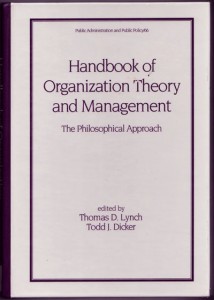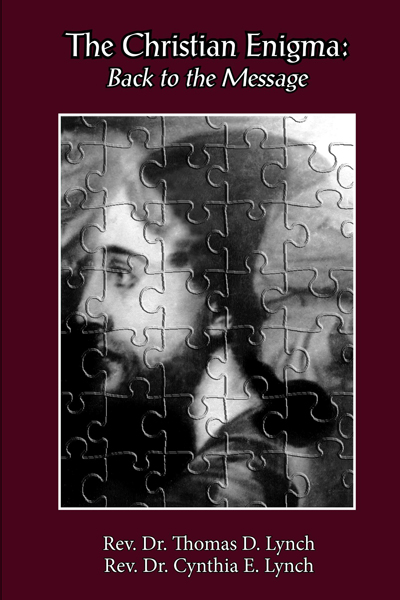Handbook of Organization Theory and Management
Handbook of Organization Theory and Management.
 (public administration and public policy; 20)
(public administration and public policy; 20)
Includes index
1. Public administration. 2. Organization. 3. Management. I. Lynch,
Thomas Dexter, [date]. II. Series.
JF1351.07 1983 350′.0001 83-7751
ISBN 0-8247-7021-8
Copyright © 1983 by Marcel Dekker, Inc. All right Reserved.
Neither this book nor any part may be reproduced or transmitted in any form or by any means, electronic or mechanical, including photocopying, micro filming, and recording, or by any information storage and retrieval system, without the permission in writing from the publisher.
PREFACE.
A NEW APPROACH
As a person who has both worked in and taught public administration, I have felt a deep frustration with the two most common approaches to teaching organization theory, The most common method is to historically review the evolution of organization theory literature. The second approach is to explain and debunk other theories of organization and then explain the implicit wisdom of the instructor’s favorite theory. I felt that neither helped the prospective or actual practitioners more easily understand the relevance of theory to the challenges they must face.
My original felling was that I should write a textbook in organization theory, but I soon abandoned that project as impractical. One problem was simply my lack of the time necessary to take on such a vast subject. Another problem was that very diversified knowledge was necessary, and I became aware that the project might best be accomplished by a group of people, with each person assigned to a specific topic. In other words, and organizational approach seemed best. My plan was to select specific subjects that public mangers commonly face as administrative challenges in their work. I then asked outstanding individuals to write on each topic with the expressed intention of orienting the chapters to practitioners of public administration. They were also asked to search out political and organizational normative theory which would best help practitioners better understand each chapter topic. I doubt if there are simple answers to today’s and tomorrow’s administrative problems, but an awareness of past thought on hey subjects can help professionals better deal worth their challenge.
In trying to develop answers to contemporary problems, I have noticed that the same set of solutions as developed in the past tend to be advanced in contemporary settings. Normally the contemporary advocates do not realize their “solutions” were better presented by thinkers in the past; we fail to take advantage of the literature. By knowing the literature, one can often anticipated and even improve on or more easily refute the arguments of others. Also, one can build upon the excellent ideas of others instead of working de nove on each challenge.
Why not profit from their efforts?
USE AS A TEXT
In order to facilitate the use of this book as a text in organization theory, the editor has added review questions for each chapter and included an appendix of chapter study questions. The study questions can be used to guide calls discussion. The review questions can be used to help students reconsider the material in each chapter and can even be used as a set of comprehensive exam questions to be drawn upon by the instructor. the questions are meant to provoke thought using the material in the chapter. but in some cases they go beyond that material conceptually.
The reader should at the completion of this book have a better understanding of the relevance of organization theory to the continuing problems of administering public organizations. Simple answers may not be forthcoming, but readers should understand the true complexity of the problems they face and why simple solutions are not workable. If they do. the objective of this book has been accomplished.
ACKNOWLEDGMENTS
Putting this book together was an enjoyable task because of the high caliber of talent and serious scholarship of the authors. Thanks must be give to Jack Rabin for this help. special thanks go to Dixie Jenning and Marion Malove for their excellent secretarial assistance.
Thomas D. Lynch
